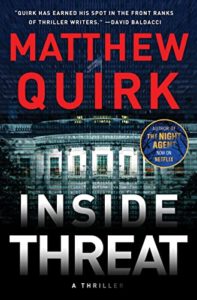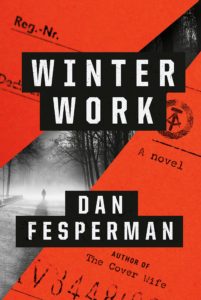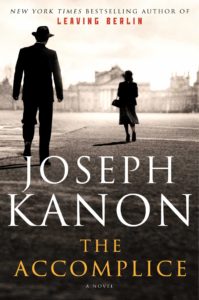
Is President Kline in Matthew Quirk’s new conspiracy thriller the target of an insidious plot by government insiders to overthrow him, or is he himself planning some sort of coup that will make him a virtual dictator? Can Eric Hill, a CIA agent demoted to desk duty save the country and the president?
These questions drive Inside Threat, a book which will likely remind you of movies like Olympus Has Fallen, White House Down, and In the Line of Fire. Quirk’s debut thriller Night Agent was a recent Netflix hit and this book feels like it’s been written to be turned into another limited TV series. The book is light on description except when it comes to the fascinating mountain fortress the president is hustled off to when the White House is seemingly breached.
Based on a real government site, the massive retreat is meant to be impregnable, with gigantic blast doors securing it from every possible threat, man-made caverns, buildings inside those caverns that rest on grids of gigantic springs, a reservoir and power station, multiple tunnels and a sophisticated ventilation system. According to a White House website, “In addition to the basic life support requirements of power, water, and air, the underground metropolis also contains a medical and dental clinic, fire department, post office, dining facility, snack bar, dormitories, chapel, barbershop, fitness center, bowling alley, and even a Starbucks.”
In an author’s note, Quirk notes that he’s simplified the layout, hoping that the maze-like interior doesn’t make it hard for readers to find their bearings. You will probably still need to consult the map of this redoubt.
Quirk has a firm grasp on the “can-the-good-guy-be-redeemed” thriller motif, but the book isn’t seamless. I think a better editor would have cut the genre cliché of the villain speaking in a “chilling whisper.” And careful copy editing would have flagged repetition of details about the retreat, the “forest” of springs under each building, and lines like “She seemed to be restraining an agitated energy,” “A leaden sickness grew in the president’s belly,” and “A nauseous feeling took hold of Eric.”
More importantly, the many intense action sequences could have been made clearer, especially since the complex is filled with entrances, exits, and secret passages. Though he does keep you guessing about the president’s real intentions, the reasons for the conspiracy also aren’t entirely convincing and Quirk hasn’t made the president’s policies and record clear enough.
All the same, Inside Threat is a classic, high-energy thriller as one explosive crisis follows another. And the next time you see Secret Service agents protecting anyone in real life, they could bring to mind Quick’s hero describing the sad realities of the job: “You go behind the curtain. You see the mismatch between the public and private faces. You keep your mouth shut. It’s not always pretty.” ★★★★
Lev Raphael has reviewed mysteries and thrillers for The Detroit Free Press and other publications.


